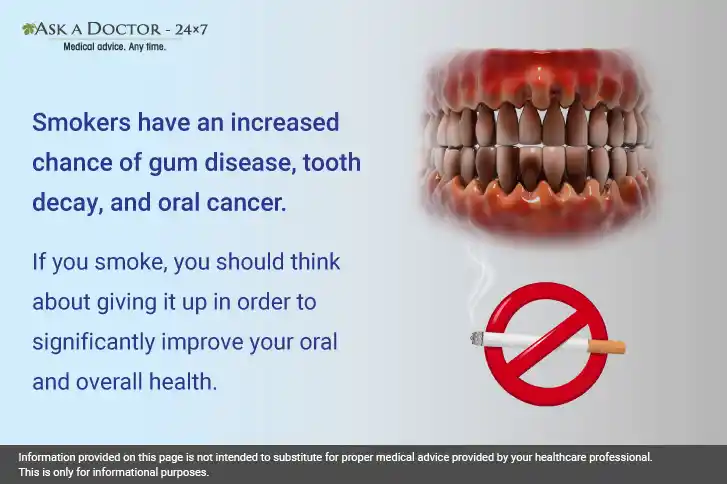Here's Why Your Gums Are So Important To Your Over All Health
Alike our skin, gums are the pink, fleshy supporting tissue inside the mouth that keeps teeth in place. They are a kind of nest and anchoring system that supports and shields your teeth. Gums form a tight seal around the teeth and provide a protective barrier, preventing bacteria and food in the mouth from entering the deeper cavities in your teeth, where they would eventually lead to decay and tooth loss.
When we talk about gums and oral health, our attention is typically drawn to our teeth. Our mouth is the gateway to our body, and what happens in your gums is not isolated to the mouth. Gum disease or periodontal disease is an infection and inflammation of the tissues in your mouth that has the potential to disintegrate the supporting structure of your teeth. Gum health can have a big impact on your general body's health. There are long-term advantages to maintaining your gum health and assisting your kids in developing healthy dental practices.
Let us understand the significance of our gum health on our body.
What Causes Periodontal Disease?

Your mouth has an incredibly complex environment consisting of soft tissues (gums, cheeks, and throat) and hard tissue (teeth), as well as muscular organs (tongue) are colonized by abundant microbiota.
Do you know that your oral cavity has the second largest and most diverse microorganisms (about 700 different species of bacteria) after the digestive tract? It harbors a wide variety of microorganisms, including viruses, bacteria, fungi, and protozoa. There will always be germs in your mouth, regardless of how frequently you clean your teeth and gums. The oral microbiome, which includes both good and bad bacteria, is similar to that found in the intestines.
It is the accumulation of harmful or pathogenic microorganisms in the gums that causes periodontal disease. In addition, the body's response to this bacteria results in inflammation, which further damages the gum tissue.
On teeth, plaque, a sticky material containing bacteria, accumulates. If this plaque is not brushed away, the germs accumulate, causing gum irritation. Periodontal disease either results in minor redness, swelling, sensitivity, or bleeding from the gums known as gingivitis, or a more serious gum disease that can cause persistent bad breath, loss of teeth, and a bone structure called periodontitis. Without treatment, periodontal disease slowly destroys your gum structure and supporting bones of teeth. To know more about the treatment procedure, you can Ask a Dentist, Oral and Maxillofacial Surgery Specialist online.
Understand the Effects of Healthy Gums on Our Body Function
Let us uncover some of the surprising links between gum disease and various health issues in general:
1) Gums linked to heart disease
Cardiovascular issues like heart disease and stroke have been connected to gum disease. Research indicates that heart health can be predicted overall by gum health. The plaque buildup on your teeth is closely related to and a good predictor of plaque buildup (fatty deposits) in your arteries. Unquestionably, gum disease is a common condition in heart attack and stroke victims.
By scheduling routine professional tooth cleaning appointments at a dental clinic, you can reduce your chance of developing gum disease. Additionally, remember to maintain excellent oral hygiene at home.
2) Gums linked to diabetes
Uncontrolled blood sugar levels can result in increased glucose levels in the saliva, which encourages the growth of bacteria that cause gum disease. Furthermore, infections brought on by untreated periodontal disease can raise blood sugar levels, which makes managing diabetes more challenging.
3) Gums linked to mental health
The state of our gums and teeth also affects how we feel. Advanced gum disease, tooth loss, and/or decreased smile frequency are associated with feelings of shame or self-consciousness. This could lead to isolation as people may avoid them, which is a primary contributor to mental deterioration, sadness, depression, and anxiety.
4) Gums linked to lung disease
Research has found a link between gums and lung disease and that is ‘inflammation’. Airflow to the lung is reduced when the lung tubes carrying air become narrower due to inflammation. Also, oral bacteria may potentially be inhaled into the lungs. Once within the lungs, the bacteria may cause infections that can further trigger inflammation.
How To Prevent Periodontal Disease
Good oral hygiene can help you prevent oral disease. You can prevent gum infection or reduce its inflammation by following these tips:
- Identify the earliest signs of gum disease and take prompt treatment. The most noticeable symptoms of periodontal disease are swollen, bleeding gums, pus-filled pockets, or gums that have peeled away from your teeth. Subtle alterations, such as growing gaps between your teeth and less fitting bridges or partial dentures are also signs of periodontitis.
- Get regular teeth cleaning and dental examinations for your oral health. Plaque that harbors bacteria can be removed by your dentist or dental hygienist, who can also identify the earliest signs of periodontal disease.
- Brush and floss your teeth daily. Make sure to floss right before bed and brush your teeth using a light circular motion at least twice a day. Interdental brushes, which resemble toothpicks and feature small bristles on one end, might be useful for removing food particles that become lodged in areas where there are bridges, implants, or large gaps between your teeth.
- Eat a healthy, fiber-rich diet as fiber helps keep your teeth and gums clean. A diet high in fruits, vegetables, nuts, legumes, and fatty fish not only provides all the necessary nutrients but also reduces inflammation. Research suggests that a diet rich in omega-3 fatty acids (found in fatty fish) may lower the risk of developing periodontal disease.
- Avoid smoking as one of the worst things you can do to your gums and teeth is to smoke. Tobacco prevents the healing of the soft tissue, causes dryness, and inflammation, and creates the perfect environment for harmful germs to proliferate.
- Using an antibacterial mouthwash along with daily oral care can help reduce the amount of bacteria in your mouth.
We have learned so far that gum health is associated with overall body health. Gum disease has been linked to heart disease, stroke, lung disease, and diabetes, among other health problems. A dentist can tell you about gum disease during a routine examination. In addition to visiting your dentist for routine dental cleanings and exams, there’s a lot you can do at home to maintain the health of your gums and protect yourself from the risks of gum disease. Always remember that periodontal disease can be both treated and prevented. Taking care of it in the early stages could lower your chances of several problems.
If you have swollen, tender, or bleeding gums or any dental-related problem, you can Ask a Dentist online at Ask a Doctor 24x7.
Recently Answered Questions Related to Gums and Oral Health
- Suggest Treatment For Bleeding Gums
- Does Zilactin Cause Gum Bleeding?
- What Causes Swelling In The Gums?
- Diagnosed With TIA The Day After Root Canal Treatment. Could The Bleeding Around The Gums Have Caused This?
- What Causes White Patches On The Gums?
- What Causes Thinning Of The Gums?
- What Causes Tingling Sensation In The Gums?
- What Is The Cause For Swollen And White Gums?
- Suggest Treatment For Fever, Swollen Gums And Sore Throat
Disclaimer: Information provided on this page is not intended to substitute for proper medical advice provided by your healthcare professional. This is only for informational purposes.
Ask a Specialist
Recent Questions


